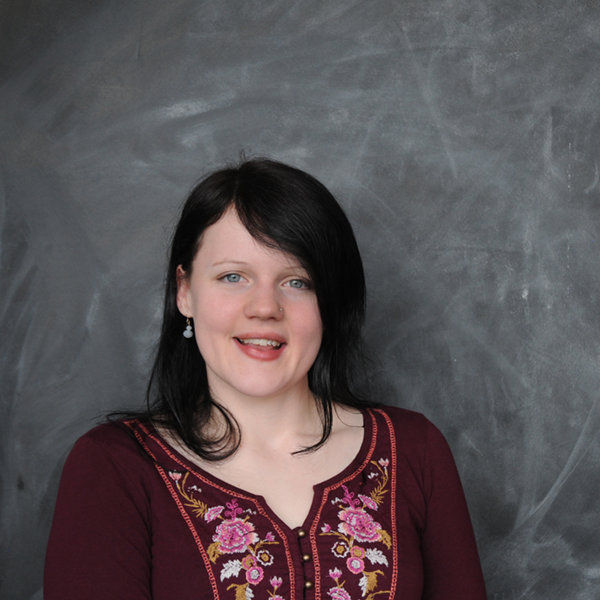


My interests lie at the intersection of psychology and philosophy and I am interested in adopting interdisciplinary approaches to the investigation of cognitive and social phenomena.
Moral Decision-Making: My PhD project investigated the way in which people make decisions in difficult and emotionally aversive situations. Moral psychologists have primarily used hypothetical text-based dilemmas to examine moral judgments but I am interested in simulated moral actions. In my PhD research, I utilised the Oculus Rift (a Virtual Reality headset) to create visually salient moral scenarios that required physical actions. These become more emotionally salient and can offer new insights into the decision-making process in arousing situations. More about my PhD project can be found on my project page “Moral cognition: An interdisciplinary investigation of judgement versus action”.
Epistemology: I am also interested in investigating ascriptions of knowledge; how we decide if we 'know' something and whether this use of 'know' varies across contexts and stakes. I am currently working as a Postdoctoral Research Fellow at the University of Reading on a project titled "the psychology of philosophical thought experiments" in which I explore the ecologically validity of classic thought experiments that seek to examine knowledge ascriptions.
I am a psychologist through and through having completed my PhD in psychology (Plymouth University), MSc in psychological research (Bangor University) and BSc in psychology (Bangor University). Both my masters and bachelors degrees were research- and taught-based providing me with an extensive overview of experimental research methods, statistical analyses, and various psychological fields including social psychology, neuroimaging, psychobiology and cognitive neuroscience.
Francis, K. B., Howard, C., Howard, I., Gummerum, M., Ganis, G., & Terbeck, S. (2016). Virtual morality: Transitioning from moral judgment to moral action? PLOS ONE. Available online 10/10/2016.
Francis, K. B., Terbeck, S., Gummerum, M., Ganis, G., & Howard, I. S. (Under Review). Moral muscle: Sensorimotor personal force in virtual moral dilemmas.
Terbeck, S., & Francis, K. (2017). We should if we could, but we cant. Experimental problems with moral enhancement. In: Hauskeller, M. Moral Enhancement. Cambridge: Cambridge University Press.
Francis, K. B. (2015, October). [Review of the book Making mind: Moral sense and consciousness in philosophy, science, and literature, by G. F. Tague]. Leonardo, 48, 493-494.
Technology-driven moral training: Moral reasoning in the emergency services. Presentation at the International Conference on Thinking (ICT), Brown University, Rhode Island, US. August 2016
Moral muscles in virtual landscapes. Presentation at the Society for the Advancement of Judgment and Decision-Making Studies (SEJyD), University of the Balearic Islands, Palma, Mallorca. June 2016
Sensorimotor personal force and moral decision-making. Presentation at UK Sensory Motor Conference, Newcastle University, UK. June 2016
Making moral judgments in a virtual landscape: A step closer to moral actions? Presentation at Moral Reasoning and Imagination Lab, Trinity College Dublin, Ireland. March 2016
Virtual morality: Understanding the effects of technological contexts. Presentation at conference ‘Institutions for Moral Behavior’, Utrecht University, Netherlands. November 2015
Virtual morality: Moral action as distinct from moral judgment. 19th Conference of the European Society for Cognitive Psychology (ESCOP), University of Cyprus, Cyprus. September 2015
August 2016: Co-organised and led 'ColLaboratoire', CogNovo's interdisciplinary summer school, Plymouth University
December 2016: Filmed for Insight TV series "Secrets of the Brain" exploring the connection between creativity and alcohol (Brighton Lambent Productions)
November 2016: Recorded radio series on Radio CogNovia for ESRC Social Science Festival, Plymouth University
June 2015: Organising Annual School of Psychology summer conference Plymouth University
March 2015: Presentation and demonstration of Virtual Reality methods British Science Week, Plymouth University
January 2015: Interview on Virtual Reality and prejudice Monitor Magazine (published by American Psychological Association)
September 2014: Virtual Reality demonstrator for Science-Technology (Sci-Tech) Event, Plymouth University
Plymouth University 2014-2017
PhD in Psychology
Thesis: Moral cognition: An interdisciplinary investigation of judgment versus action
Bangor University 2012-2013
MSc Psychological Research (pass with Distinction and received Bangor award for highest degree mark in the course)
CORE MODULES: Quantitative & Qualitative Research Analysis, Advanced Statistics, Advanced Skills & Research Training, Communicating Research in Psychology
SPECIALISED MODULES: Introduction to Neuroimaging (fMRI), Consumer Psychology: Theory & Practise, Practical Programming
Dissertation: Metacognition (linking to precision teaching methods such as SAFMEDS)
Bangor University 2009-2012
BSc Psychology (1st Class Honours and received the BPS Undergraduate Award for highest degree mark in an accredited degree)
CORE MODULES: Developmental Psychology, Social Psychology, Learning & Language, Personality, Intelligence & Individual Differences, Clinical & Health Psychology, Motivational Psychology, Research Methods & Statistics, Memory, Perception & Attention, Psychobiology
SPECIALISED MODULES: Cognitive Neuroscience & the Visual Arts, Science of Education, Biological Foundations of Memory, Human Evolution & Behaviour
Dissertation: Metacognition (Cognitive Psychology, Educational Psychology)
I have experience developing applications in Xamarin using C# and have begun utilising Unity 5 (3D) to create virtual scenarios for the Oculus Rift.
Skilled in the use of eprime to create experimental paradigms
Have utilised a robotic system in an experimental set-up in order to foster immersion through haptic feedback
Howard IS, Ingram JN, Wolpert DM (2009), “A modular planar robotic manipulandum with end-point torque control.” J Neurosci Methods
Extensive experience with Virtual Reality headsets including Oculus Rift 1 (DK1) and Oculus Rift 2 (DK2) in experimental settings
In terms of statistical analysis, I have extensive experience using IBM SPSS.
I have intermediate experience with MATLAB.
Extensive use of MS Excel for data recording, coding, and graphical representation of data
Adobe Photoshop and Illustrator for creating experimental stimuli
Adobe In-Design for creating research posters, displays etc.
MS Office (PowerPoint, Word etc.)